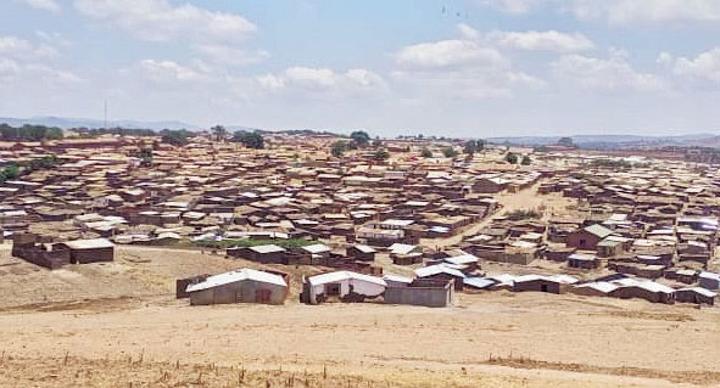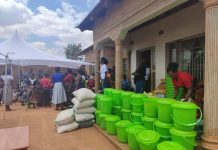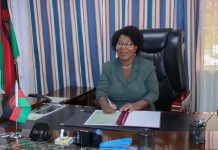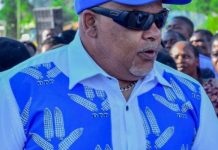Africa-Press – Malawi. The Department of Refugees has acknowledged the presence of several firearms and trafficked individuals at Dzaleka Refugee Camp in Dowa District, which it says poses a threat to national security.
However, the department has reiterated that it lacks the necessary manpower to fully assess and address the situation.
This is not the first time security issues have emerged from Malawi’s only refugee camp, which reportedly houses over 55,000 refugees, asylum seekers and others who reportedly do not fit into either category.
In June, Malawi Defence Force (MDF) Commander Paul Valentino Phiri raised concerns about the influx of irregular immigrants, describing them as a risk to national security.
His concerns followed the apprehension of several foreign nationals from the camp on suspicions of illegal residence, with some allegedly involved in human trafficking.
According to Malawian law, including the Encampment Policy, only individuals verified as genuine refugees or asylum seekers are allowed to reside in refugee camps.
In response to the security threats, MDF removed 220 people from the camp, classifying them as irregular immigrants.
At that time, the soldiers also detained 17 other foreign nationals, including Pakistanis, on suspicion of illegal entry.
MAULANA—The department lacks manpowerAnd during a visit to the camp on Saturday, Commissioner for Refugees General Ignatius Maulana reported that “there are many small arms in the camp”.
“We do not know how dangerous this could be in the long run. The department lacks manpower; we have only one security officer and four guards managing the camp,” Maulana, a former MDF commander, said.
He further noted that the camp, which hosts over 55,000 people, is serviced by only 15 police officers, each responsible for 3,600 individuals, far exceeding the internationally recommended ratio of 1:500.
This situation, he said, also undermines security.
The visit was organised by Youth and Society (YAS) for members of the Parliamentary Committee on Defence and Security to better understand the situation at the camp.
Regarding human trafficking, Maulana mentioned that although MDF recently apprehended 210 suspected irregular immigrants and trafficked individuals, more may still be in the camp.
“There could be 600 or more people in the camp and only the security institutions can effectively handle this situation, as it requires serious attention,” he said.
Dowa Police Station Officer-in-Charge Almakio Daka suggested the establishment of a dedicated police unit at the camp.
“Police officers who are engaged there receive only K1,000 per day as an allowance for their meals, which is insufficient,” Daka said.
Hilda Katema Kausiwa, Senior Administrative and Operations Manager at the Department of Refugees in the Ministry of Homeland Security, appealed for assistance from other security agencies.
She said while attempts have been made to bring in community policing officers, their numbers are inadequate.
“We need an increase in the number of police officers,” Katema Kausiwa said.
In response to the challenges, Chairperson of the Defence and Security Committee of Parliament, Salim Bagus, described the situation as urgent and in need of immediate attention.
Bagus assured that his committee would address the security concerns with the relevant agencies.
“Security issues are complex and challenging to discuss through the media. However, we are confident that discussions will lead to solutions.
“Some issues require long-term solutions, while others, such as establishing a police unit, should be relatively straightforward,” he said.
Peter KalayaNational Police spokesperson Peter Kalaya urged anyone with information about firearms in the camp to report it to the police “promptly.”
“We are doing everything possible to ensure the safety and security of everyone there,” Kalaya added.
Meanwhile, YAS Executive Director Charles Kajoloweka underscored the need to balance national security with the rights of those in the camp.
Kajoloweka cautioned against using security concerns as a pretext to undermine the human rights of the 55,000 residents.
“We need to find a balance between national security and the welfare of the refugees. We cannot sacrifice their human rights due to security lapses,” he said.
During the visit, it was revealed that no progress has been made on the Chitipa Refugee Camp project despite the government’s commitment of K300 million in the 2024-25 budget.
No funds have been released for necessary activities such as environmental impact assessments and awareness campaigns since the start of the current financial year on April 1, 2024.
For More News And Analysis About Malawi Follow Africa-Press






